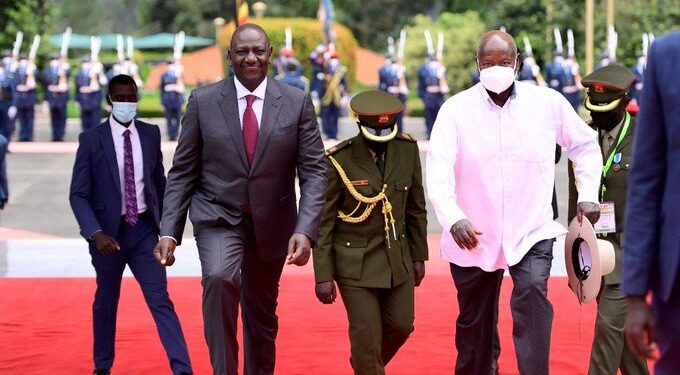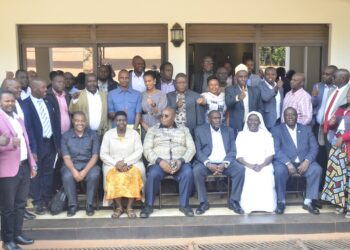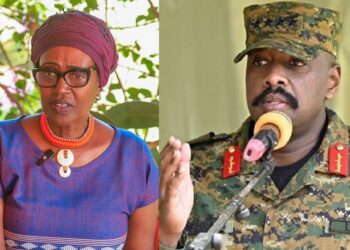In a bid to defuse growing tensions between Ethiopia and Somalia, Kenyan President William Ruto and Ugandan President Yoweri Museveni have pledged to mediate the ongoing dispute, which threatens to destabilize the Horn of Africa region.
The conflict centers around Ethiopia’s controversial plans to build a port in the breakaway region of Somaliland, a move that has angered the Somali government.
The Horn of Africa has long been a region of strategic importance, and the dispute between Ethiopia and Somalia over the port issue is now one of the key challenges to regional stability. Ethiopia, a landlocked country, has been engaged in a protracted fight against Al-Qaeda-linked insurgents in Somalia, with thousands of Ethiopian troops stationed there. However, the proposed port in Somaliland has sparked significant tension with Somalia’s government, which sees the move as a threat to its territorial integrity and sovereignty.
Somaliland, which declared independence from Somalia in 1991, has maintained de facto autonomy and a relatively peaceful and stable existence compared to much of Somalia, which has been embroiled in conflict for decades. Despite its self-governance, Somaliland has struggled to gain international recognition as an independent state, with only a few countries acknowledging its independence. Ethiopia’s endorsement of the port project in Somaliland could potentially pave the way for the region’s recognition, but this has been fiercely opposed by Somalia, which views it as a direct challenge to its territorial claims.
The diplomatic fallout has also caused Somalia to strengthen ties with other regional powers, particularly Egypt and Eritrea. Egypt, which has been in a longstanding dispute with Ethiopia over the construction of a massive hydroelectric dam on the Nile River, has shown support for Somalia’s stance. Eritrea, another longtime adversary of Ethiopia, has also aligned itself with Somalia in opposition to the port plan.
At a regional summit on Saturday, Kenyan President William Ruto expressed his concerns over the escalating tensions and the potential for broader instability in the region. “Because the security of Somalia contributes significantly to the stability of our region, and the environment for investors and business people and entrepreneurs to thrive,” Ruto said at a press conference. He emphasized that Kenya and Uganda would work together to mediate and bring both Ethiopia and Somalia to the negotiating table.
The summit also saw Somali President Hassan Sheikh Mohamud meeting with Ruto and Museveni on the sidelines, though Somalia’s office did not publicly comment on the mediation efforts. Despite Kenya and Uganda’s intentions, Somalia’s foreign minister, Ahmed Moallim Fiqi, expressed skepticism regarding the effectiveness of regional interventions. Fiqi stated that previous resolutions from regional leaders had not been successful in persuading Addis Ababa to change its course. However, he voiced confidence that ongoing mediation efforts by Turkey could eventually lead to a breakthrough.
Turkey has been actively involved in trying to mediate the dispute, holding several rounds of talks in Ankara, but these attempts have yet to yield any tangible results. Despite this, Fiqi remained hopeful that a diplomatic resolution could be reached.
Ethiopia, for its part, has yet to publicly respond to the proposed mediation efforts by Kenya and Uganda. The Ethiopian government and foreign affairs spokespeople did not immediately provide comment on the matter.
As the situation continues to unfold, the involvement of Kenya and Uganda could play a critical role in preventing further escalation of the dispute. The broader stability of the Horn of Africa hinges on a resolution to this disagreement, as the tensions between Ethiopia and Somalia ripple across the region, influencing diplomatic alliances and security dynamics.
The coming weeks will likely determine whether Kenya and Uganda can successfully mediate a peaceful resolution or if the conflict will continue to deepen, potentially involving more regional powers and threatening the fragile peace in the Horn of Africa.
Do you have a story in your community or an opinion to share with us: Email us at editorial@watchdoguganda.com













